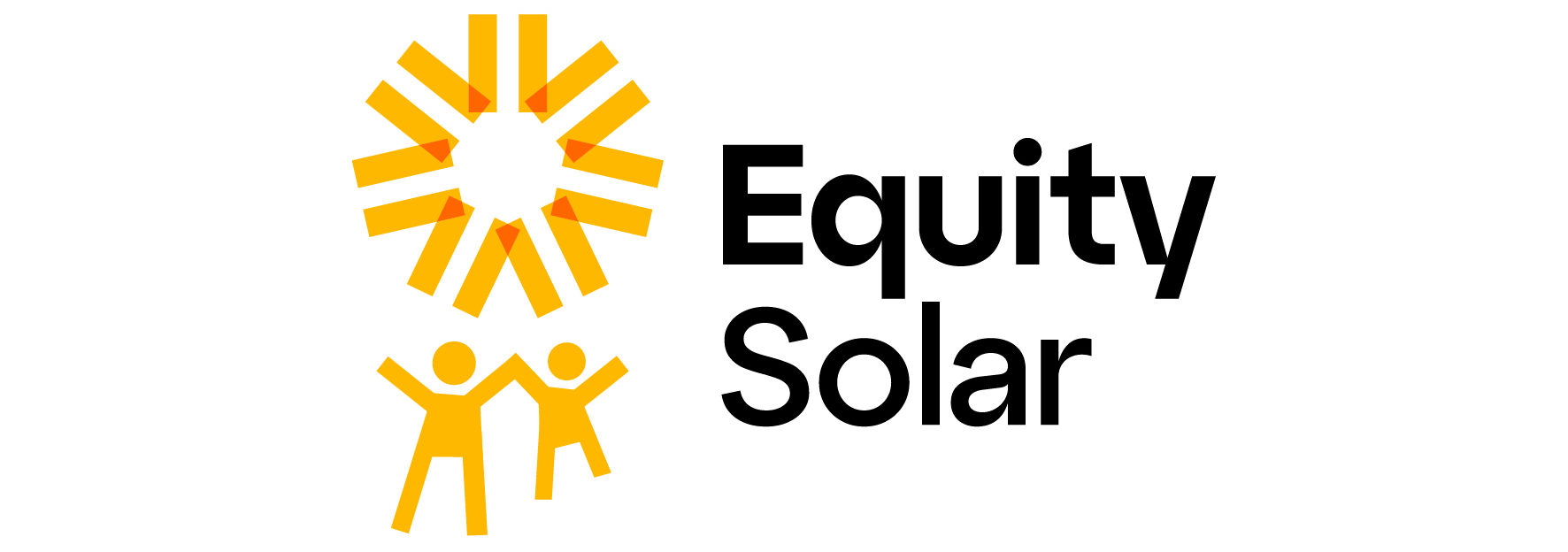After arriving to Australia Maria said “We didn’t know safe places like this existed in the world”. This is her incredible story of survival, resilience and making the most of new opportunities as told by Jenny Collins-White.
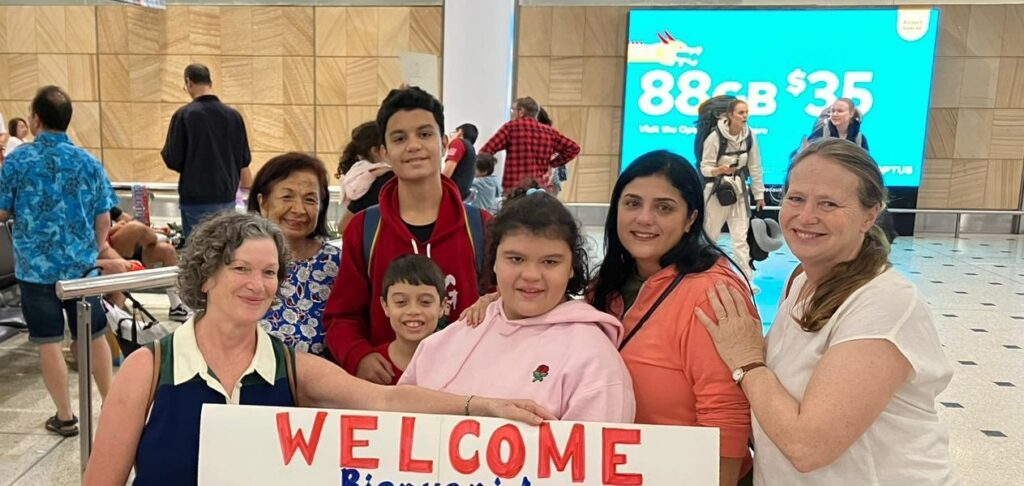
Jenny Collins-White: I’m the coordinator of a CRISP group (Community Refugee Integration Settlement Program) and this is a snapshot of a refugee family’s journey,
We are a group of 8 community people who are connected through our local Catholic church and we are supporting a family of 4, a Mum and 3 school aged children.
Maria and her children are originally from Venezuela but fled to the Dominican Republic and claimed refugee status in 2017. They awaited resettlement and were lucky to be allocated a placement in Australia, arriving in February 2024.
When you are in a transit country which is materially poor like the Dominican Republic you don’t have work, health and education rights as you are in a state of waiting to be given a place in a country that accepts refugees. So, the opportunities you have are limited and often provided by charities and aid agencies, work is hard to get.
Maria is a qualified accountant but was working in the area of nails and beauty. The boys had limited schooling and the daughter was often at home with a carer as she has a learning disability.
Since arriving in Australia they feel so privileged as all of their health and education needs are provided for. Maria is learning English and developing her work opportunities by upskilling and getting her driver’s licence and the children are thriving with the rich education they are receiving.
Their first year was indeed a rollercoaster ride, with so much learning and adjustment. Our group was lucky to secure housing for Maria and the family before they arrived through the generosity of a couple who were involved in the CRISP scheme, and who were prepared to make their townhouse available for a very reasonable rent. We were also assisted by locating donated furniture and household goods which helped with the budget bottom line.
Many groups came to our aid by locating quality used items and assisting with some new furniture when secondhand items couldn’t be located. When the family arrived they couldn’t believe that they would have a house for themselves and that this house consisted of more than 2 rooms!
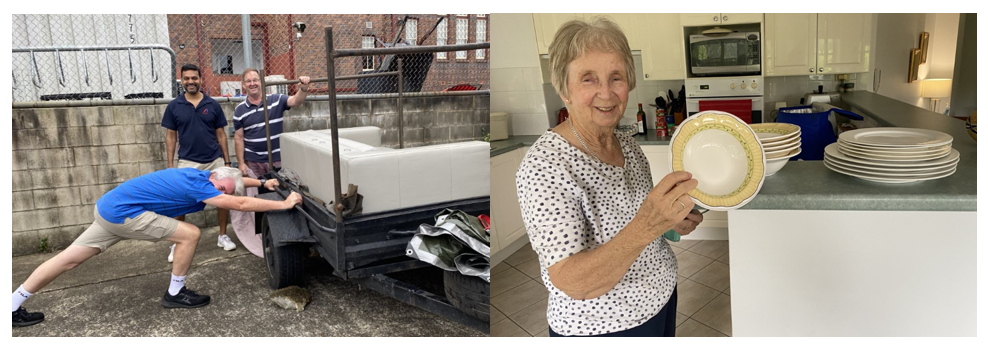
First there were blood tests and vaccinations for everyone, dealing with interpreters and finding a doctor who speaks their home language, then there was the excitement of finding local schools who would assist with both English and other curriculum subjects. The retired teachers in our group were onto this and helped Maria navigate the systems. The schools responded quickly and before you knew it the children were enrolled and they were scheduled to start in a few days.
Day 1 was so exciting for 9 year old Miguelangel who had only had 2 years of formal education in the Dominican Republic. He was 2 years old when he arrived in that country and was accepted as a refugee in Australia when he was 9. The group’s fundraising efforts assisted with the purchase of uniforms and school essentials. We received an elated message from Maria one morning saying that her 15 year old had successfully caught the train and bus to his new school on his own, a super achievement after only 2 weeks in the country and with no prior English. We were connected with community charities who helped with soft furnishings that turned a bare house with the essentials ‘into a home’ as Maria said. The charity invites you to their warehouse where you can select cushions, rugs, tables, lamps etc. to your own taste. When the charity delivered all the items that transformed the house Maria added, ‘haven’t I got great ideas, I should have been a fashion designer’, she was so excited.
Opal cards, train and bus rides; a TV that has the right antenna; intensive English classes for Maria; Medicare and Centrelink; shopping and Peppa Pig; church on Sunday; walking in safe neighbourhoods; a scooter; new and secondhand clothes; heating in a cold Australian autumn when you’ve not experienced temperatures below 18 degrees; games and time spent together as a family with new Australian friends; joining a soccer/football team; being locked out of the house and needing the group to come to the rescue with a long ladder; a first Easter in Australia with us their ‘Australian family’; asking our extended community networks for advice on jobs and gardening; going to Manly Beach and Taronga Zoo; fun in parks and sunshine.
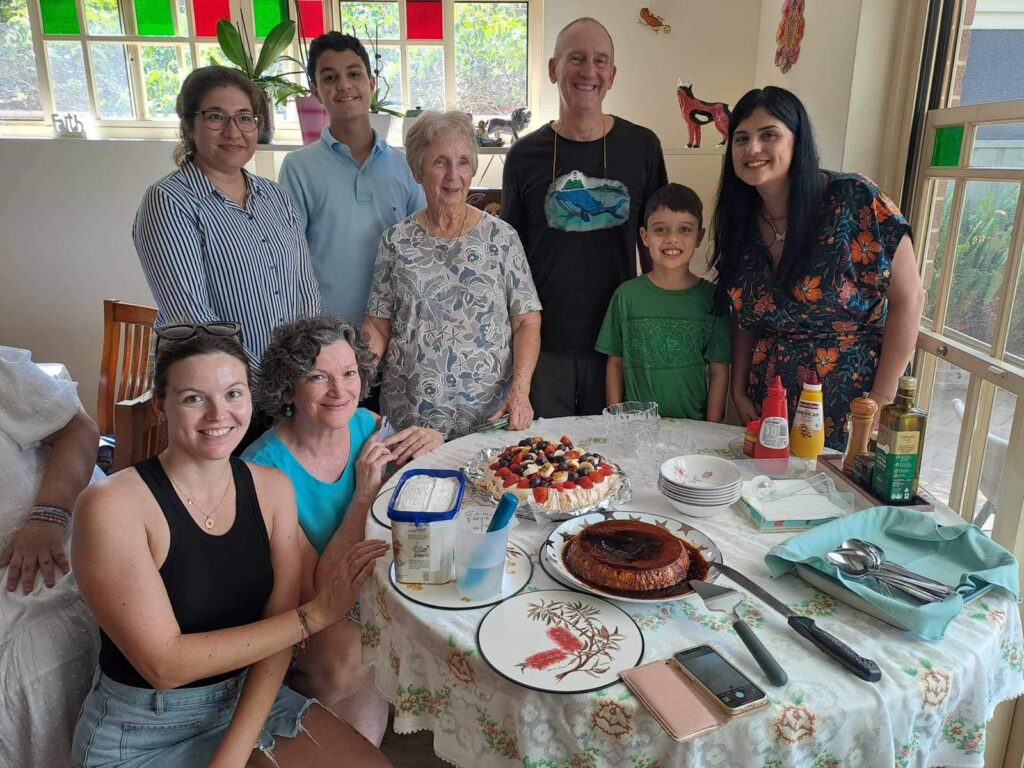
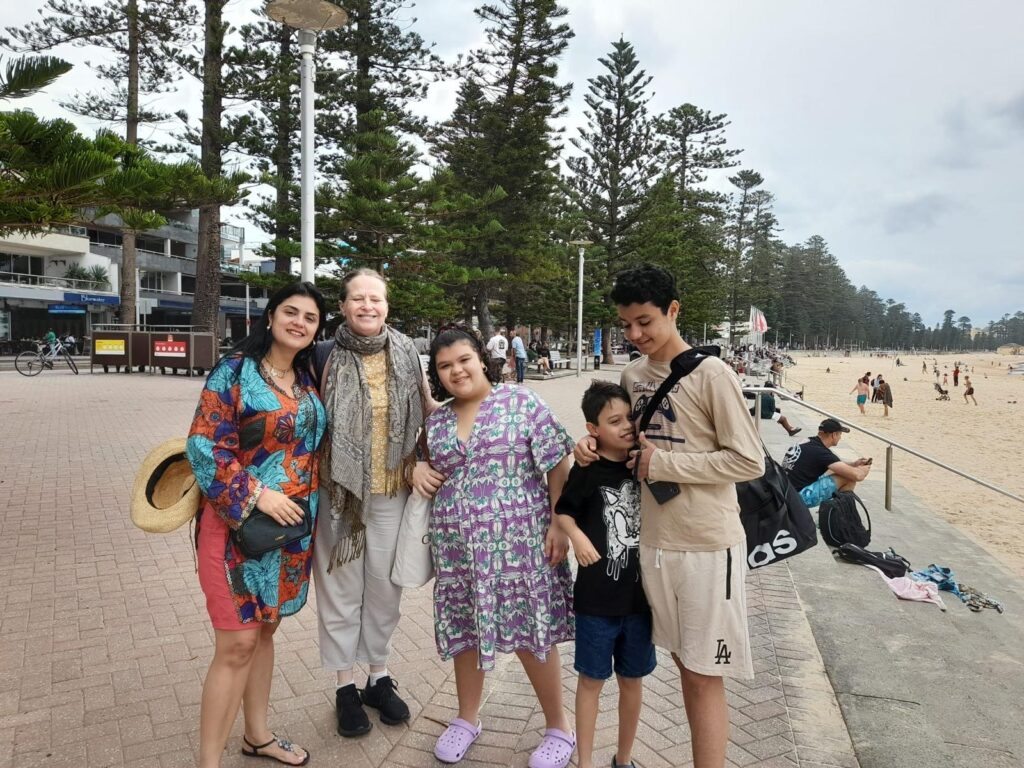
Although there is a great deal of good news there are still some substantial challenges. It seems that Maria’s daughter has a disability that the medical professionals are still attempting to diagnose. She was admitted to hospital twice during the year, the last time on Christmas day, she has seizures and they are attempting to control the symptoms. This limits Maria’s ability to work and earn.
The youngest son is also struggling to catch up on the schooling he has missed out on. As he is not literate in his first language, Spanish, it is challenging to learn and take risks in English. The educators in our group are trying to assist but there is a huge gap to bridge.
Maria has learnt to stretch the money she has but without the group’s financial support, which ceases after 12 months, she will struggle. We will continue to be there for the family as friends and advise her regarding ways to reduce costs by accessing various supports in the community. The 16 year old will continue at school and hopes to go to university, he is seeking a casual job which will also supplement the family income.
They have great faith and hope in the future and they will multiply any benefit that comes their way, they know what it is like to have very little.
